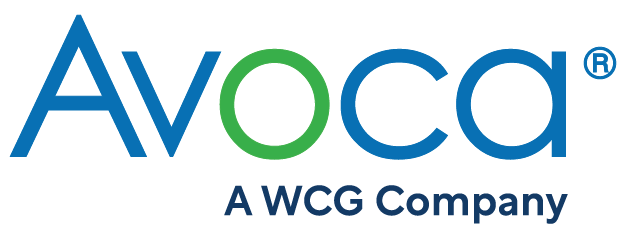Article: How A Small Biotech Survived A Virtual Regulatory Inspection During COVID-19
July 7, 2020 – Clinical Leader
By Mai Nguyen, Senior Consultant, The Avoca Group
 In clinical research, we learn to act instinctively and quickly when it comes to making decisions about subject protection, data validity, and ethical conduct. That skillset inherently comes with the ability for problem-solving with a focused determination on the patient. The challenges of COVID-19 shine the light on how we use this skill to carry on the mission of bringing needed medicines to those who need it.
In clinical research, we learn to act instinctively and quickly when it comes to making decisions about subject protection, data validity, and ethical conduct. That skillset inherently comes with the ability for problem-solving with a focused determination on the patient. The challenges of COVID-19 shine the light on how we use this skill to carry on the mission of bringing needed medicines to those who need it.
For a small U.S. biotech company, a Japanese Health Authority (MHLW/PMDA) inspection scheduled in March 2020 would be the first of multiple global regulatory pre-approval inspections of its novel product for treatment of a rare disease. Partnering with a niche CRO operating in Japan as the In-Country Clinical Caretaker (ICCC) designee, whom the team heavily relied on to manage the conduct of the clinical trials and host the inspection, seemed an appropriate strategy for a sponsor team without any prior inspection experience.
The month before the inspection had been spent furiously collating, scanning, and indexing hundreds of documents, then translating them and sending them to the PMDA for the Document Conformity Review. This phase of the inspection would then be followed by the GCP Conformity on-site inspection of several investigative sites and the sponsor in March. The sponsor team, with subject matter experts from the U.S. and EU, made travel plans for the one-day inspection in Tokyo. They would rely heavily on the CRO to manage the logistics of the inspection, including hiring interpreters, setting up the audio-video equipment, and partitioning offices to accommodate two PMDA inspectors, each conducting document review and GCP conformity tasks.
Concerns were brewing elsewhere. The Trial Master File (TMF) had been maintained in separate physical locations in the U.S. and Japan, which made it difficult to determine the full inventory of study documents, some of which were in Japanese. The current CRO had just taken over the ICCC responsibility and did not have all the historical context on what the previous CRO had done. Communication, to say the least, was an act of patience.
The team strategized on the use of the PMDA’s inspection checklist, available from its website, as a way to identify the relevant documents and their location (U.S. vs. Japan) and who would speak to each topic outlined in the checklist. While seemingly a simple task, the state of the TMF and the lack of history of the early stages of the trial were huge obstacles to overcome. Next, a team of consultants was deployed to Japan in a last-minute effort to reconcile the paper TMF two weeks before inspection. Just a few days after that, a travel ban advisory to Japan was issued by the U.S. State Department, and within a short time, U.S. federal and state quarantine mandates took effect.
As the situation developed, the sponsor communicated with the PMDA about the travel ban and came to an agreement only a few days before the actual inspection date that a virtual remote inspection of the sponsor, combined with an on-site inspection of the CRO, would be the course of action.
Preparing For A Virtual Inspection
Although work-from-home directives were in effect, the study team was considered essential for the inspection and maintained their in-office routine, practicing social distancing according to company guidelines. Immediately, the team switched gears to plan for a virtual inspection from their U.S. offices. They evaluated several technology platforms for videoconferencing, audio equipment with noise reduction and voice/motion recognition, and also document-sharing platforms to retrieve and share documents rapidly. Establishing a reliable internet connection was also critical.
Documents were scanned and staged in a centralized repository in the order of the inspection checklist to allow for easy retrieval by topic, including non-TMF documents, to reduce time lags that would result from searching other archives. Subject matter experts practiced answering questions outlined in the inspection checklist. As many individuals had not been through a PMDA inspection, they were coached on cultural behaviors and language barriers, including the practice of conducting interviews with PMDA inspectors through interpreters. The ability to respond accurately and succinctly while establishing a remote rapport with the inspectors would be key to a virtual inspection. A virtual mock practice was conducted to mimic the actual inspection conditions, testing the setup’s videoconferencing, audio, and computer systems. This allowed interviewees to be acquainted with the virtual environment and inspection managers to test the document retrieval process and the quality of visual and audio connections.
On the day (and evening in the U.S.) of the inspection, four PMDA inspectors arrived at the Tokyo ICCC offices, rather than the two the team had anticipated based on previous information conveyed to them. The inspectors paired up in separate rooms and proceeded with a vigorous and lengthy inspection. There were no connectivity issues and the pace of document retrieval matched what would be expected. Using their newly learned skills, the team was able to navigate interviews and manage logistics effectively. In the day that followed, while still glassy-eyed between the intensity of a first-time inspection and the stress of a global viral outbreak that forced them into isolation in their homes, the team felt a sense of accomplishment, knowing they have yet more to learn from this experience.
This story is relevant in these times — it reminds us of our ability to adapt to changes and to focus on the patient. More so, it reflects that the junction between regulatory road maps, technology, and organizational agility can provide tools for success if appropriately utilized.
Regulators have long struggled to prioritize how, who, and where they inspect, given the limited resources and funds. Recent global harmonization efforts (e.g., ICH GCP Renovation, EMA, FDA BIMO Program Alignment) have yielded a healthy dose of guidance, including E6 (R2) Addendum, and soon E6 (R3), EMA TMF Guideline, and MHRA GxP Data Integrity, to name a few.
The common thread among these is an advocacy for better clinical trial quality management and efficiency based on lessons learned from failed inspections. We have clear transparency on the things that matter to regulators. Further, when technological innovation is thoughtfully designed around these global road maps, pragmatic solutions to align regulatory expectations and quality are put in place much earlier in the drug development process. COVID-19 may serve as the disruptive factor that reminds us to lean on our organization’s agility to move things forward — to solve problems using what is available to us in road maps and tools.
About The Author:
 Mai Nguyen is a senior consultant for The Avoca Group. Since 2018, she has been helping a diverse network of clients/sponsors with pragmatic solutions and strategic insights in areas such as clinical quality operations, global development, regulatory submissions, and inspections. Prior to becoming a consultant, she held multiple positions of increasing challenge and leadership within R&D pharmaceuticals and biotechnology companies. During this tenure, she contributed to the global marketing approvals of 15+ drug products for the treatment of immunological, oncology, neurological, and rare diseases. Nguyen can be reached on LinkedIn.
Mai Nguyen is a senior consultant for The Avoca Group. Since 2018, she has been helping a diverse network of clients/sponsors with pragmatic solutions and strategic insights in areas such as clinical quality operations, global development, regulatory submissions, and inspections. Prior to becoming a consultant, she held multiple positions of increasing challenge and leadership within R&D pharmaceuticals and biotechnology companies. During this tenure, she contributed to the global marketing approvals of 15+ drug products for the treatment of immunological, oncology, neurological, and rare diseases. Nguyen can be reached on LinkedIn.
About The Avoca Quality Consortium:
Founded in 2011 by The Avoca Group, the Avoca Quality Consortium (AQC) is a collaborative comprised of over 120 pharma, biotech, CRO, and clinical service provider companies with the shared objective of elevating clinical trial quality and bringing key stakeholders in the clinical trials process into greater alignment. Each AQC member organization receives company-wide access to a comprehensive and proprietary Knowledge Center of over 400 leading practices, guidelines, tools, templates, and process documents.
In March 2020, the AQC formed the COVID-19 Rapid Response Working Group to enable the continuity of clinical trials with strategies and practical support, ensuring a continuous focus on patient safety, data integrity, and regulatory compliance as the COVID-19 situation evolves. Over nine weeks, 34 executives from 26 biotech, biopharma, CRO, and site AQC member companies gathered to discuss different topics relevant to COVID-19. All AQC members have access to the session materials as well as anonymized shared content and tools to support their real-time decision making as they navigate COVID-19 and the impact on clinical trial execution.
